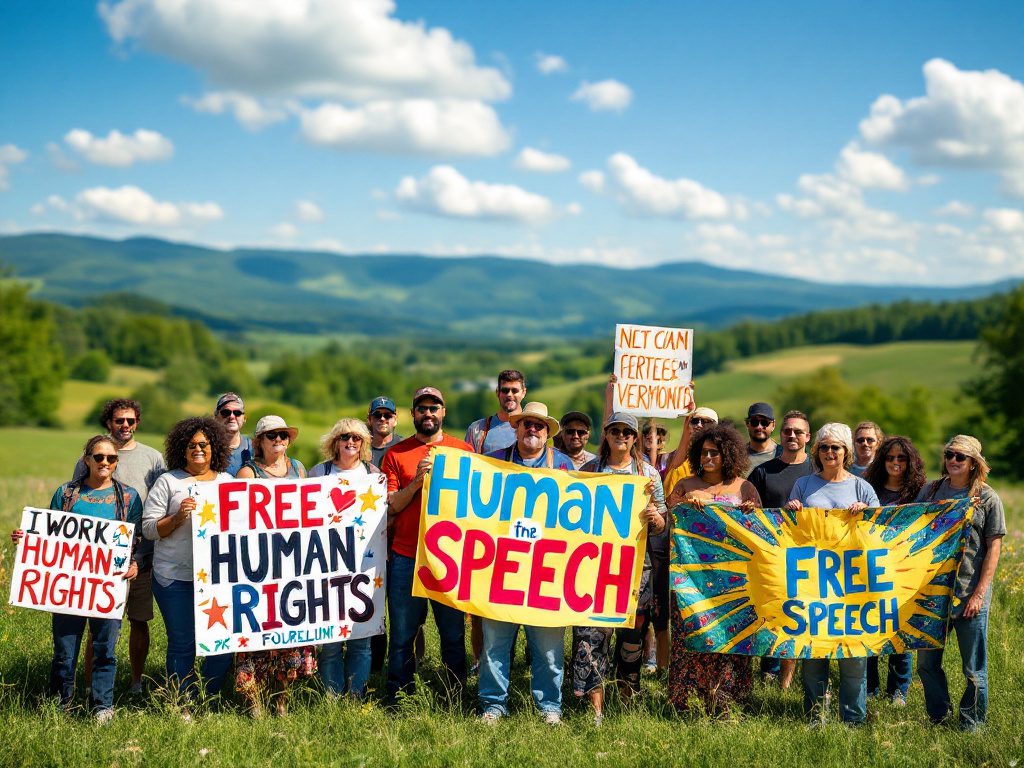Burlington at a Crossroads: One Arrest, Uncomfortable Questions
You might not expect a routine citizenship interview in Vermont to become the front lines of a national debate on civil liberties. Yet that’s precisely what happened on April 14, when masked ICE agents swept into a U.S. Citizenship and Immigration Services office, shackled Mohsen Mahdawi, and whisked him away from what should have been a milestone in his American journey. Those who know Mahdawi—an Upper Valley resident and former student organizer at Columbia University—were left shocked, his family and supporters describing the incident not as law enforcement, but as a trap.
Mahdawi’s abrupt arrest set off alarm bells far beyond Vermont. Hundreds rallied outside the Burlington courthouse ahead of his hearing, their chants a testament to growing national unease: Can dissent—especially on U.S. foreign policy—be criminalized under the pretense of immigration enforcement? Or does Mahdawi’s detention, as ICE claims, truly stem from concerns about national security?
The scene that unfolded—a Palestinian activist wrenched from an interview about finalizing his citizenship—feels disturbingly out of sync with the purported values of a nation that prides itself on free speech and due process. Unlike the familiar images of protest crackdowns in autocracies abroad, it happened here, in New England’s emblematic small cities. And as supporters gathered, Vermont’s entire congressional delegation weighed in, voicing concern about the chilling effect this could have on immigrant activists and academic freedom alike. As protests over the war in Gaza roil campuses nationwide, Mahdawi’s case crystallizes a new front: the intersection of free speech, immigration, and political reprisal.
Legal Labyrinths and the Limits of Free Expression
Beneath the rallying outside the courthouse, the legal fight over Mohsen Mahdawi’s detention exposes the ever-shifting boundaries between civil rights and government authority. Jared Carter, a professor at Vermont Law, notes that the federal government’s power to revoke green cards or detain lawful residents is not limitless—even in tense geopolitical times.
“The law is crystal clear,” Carter explained in a recent interview. “You can remove someone from the country only if their presence genuinely poses a national security risk. Participation in protected First Amendment activities, including protest, isn’t enough.” His observation echoes what advocates fear most: that Mahdawi’s arrest may be less about actual threats and more about sending a message to those who speak up.
The government insists otherwise, calling the arrest a “constitutionally valid aspect of the deportation process.” They cite unspecified national security concerns and adverse effects on U.S. foreign policy. Yet historically, the misuse of national security as a rationale for targeting dissenters has a troubled legacy. From the Red Scare through McCarthyism to the post-9/11 era, America’s commitment to robust debate has too often buckled under the weight of fear-mongering. Recent Pew Research Center studies have found public trust in government wanes sharply when authorities appear to use security as pretext for squelching unpopular opinions.
Beyond that, the experience of Mahdawi—arrested during the very moment he sought to realize his American dream—has resonance with countless immigrants whose activism for justice intersects with immigration bureaucracy. The stakes? High—not just for Mahdawi, but for anyone who believes that the right to protest is not a privilege, but a promise embedded in the Constitution.
“When the exercise of free speech becomes cause for punishment, we risk betraying the very ideals we claim to uphold as Americans.”
What do we risk losing if the government can so easily conflate protest with subversion? The answer should matter to anyone who values democracy—especially as Mahdawi’s future now rests on a series of technical legal hearings, the outcomes of which may set precedents for years to come.
Public Pressure, Political Test, and the Broader Stakes
Outside the legal briefs and impassioned statements from attorneys, the Mahdawi case has rapidly turned into a flashpoint for a broader debate about immigrant rights and the consequences of activism in the U.S. All three members of Vermont’s congressional delegation have thrown their support behind Mahdawi, calling for transparency and stressing the importance of fair process. This is more than local politics—congressional voices are amplifying what has become a national concern among those worried about the increasing criminalization of dissent.
The outpouring of support for Mahdawi—culminating in hundreds rallying outside the courthouse—highlights a critical divide. On one side, those who view vocal criticism of U.S. foreign policy as a vital form of civic participation; on the other, segments of government and public who see it as grounds for suspicion, especially when voiced by immigrants or people of color. The atmosphere today is not unlike the wartime paranoia that led to Japanese internment in the 1940s or the targeting of Vietnam War protestors in the 1970s. History, sadly, reminds us that marginalized communities have borne the brunt of efforts to silence dissent in turbulent times.
Supporters argue this is not simply a legal skirmish—it’s an existential battle for the country’s political soul. Immigrant rights organizations warn that cases like Mahdawi’s set off a “deterrence effect,” chilling activism and weakening movements for justice. As Diala Shamas, a staff attorney with the Center for Constitutional Rights, recently put it: “Challenging the state must never cost you your fundamental freedoms.”
Mahdawi’s next court date is set in Louisiana for May 1. Until then, a federal judge’s temporary order keeps him in Vermont, but uncertainty looms. Powerfully, his case has energized a cross-generational coalition of Vermonters and national advocates, who recognize that when political activism becomes perilous for immigrants, all those who seek justice—regardless of citizenship—become more vulnerable.
As this legal showdown unfolds, the true test lies not just in what happens to one activist, but in whether America can honor its most cherished ideals when they feel least convenient. It’s a test we cannot afford to fail. As the crowd outside the courthouse made clear, the eyes of the nation are watching Burlington—and noting what kind of country the U.S. chooses to be this time.

